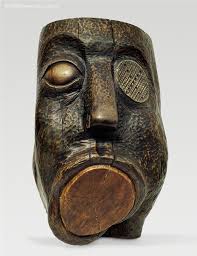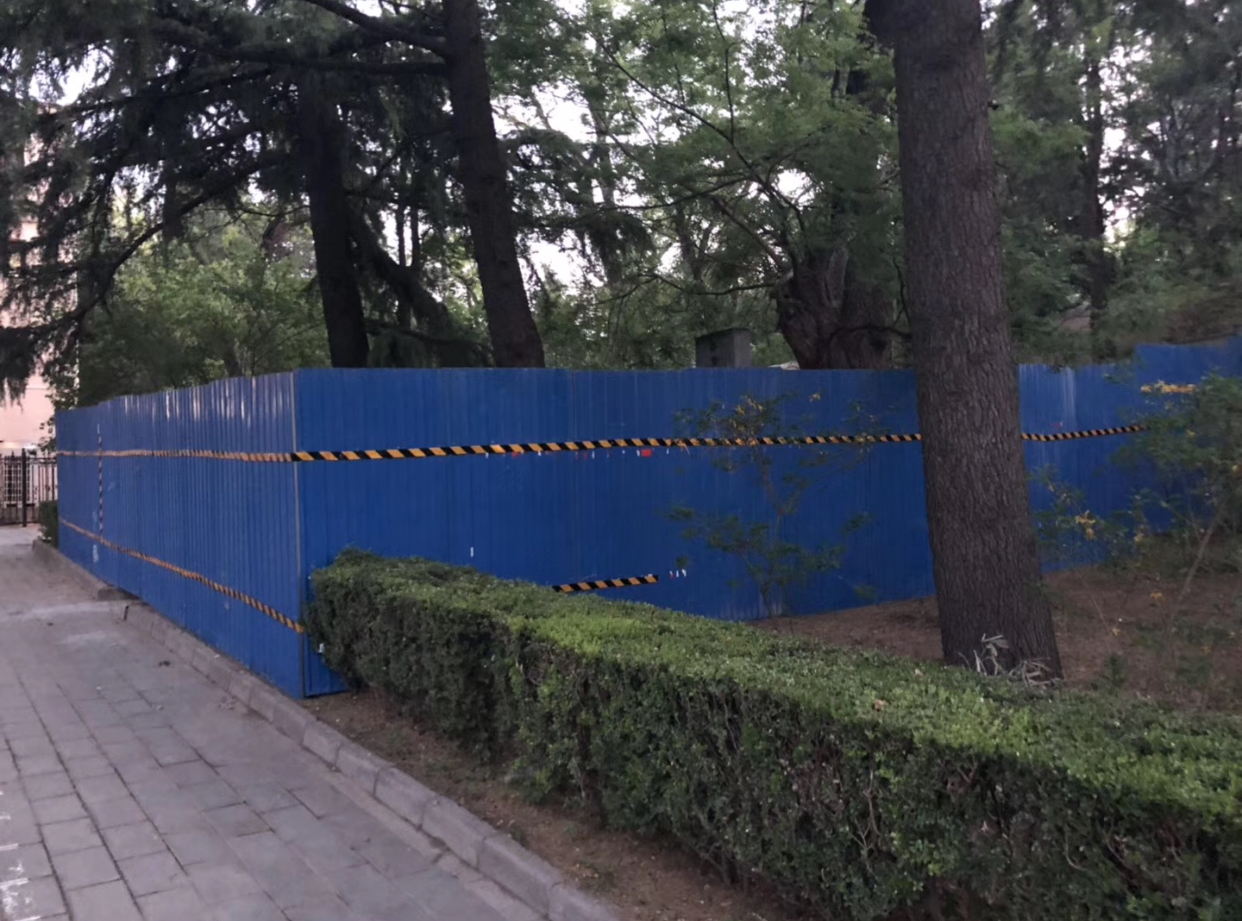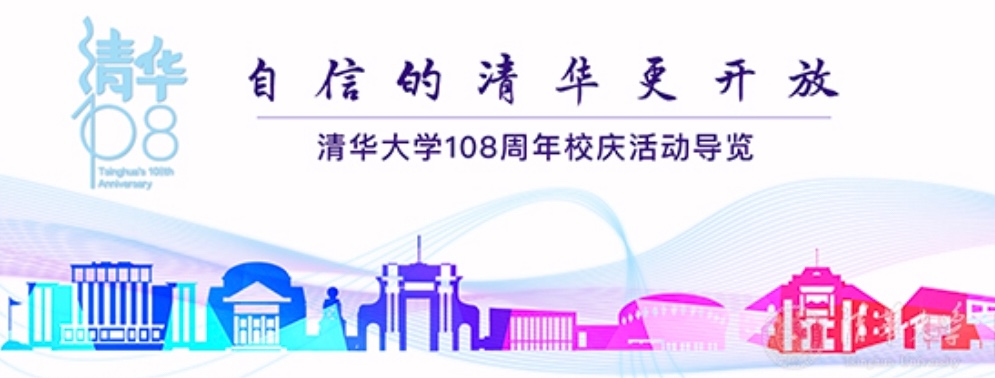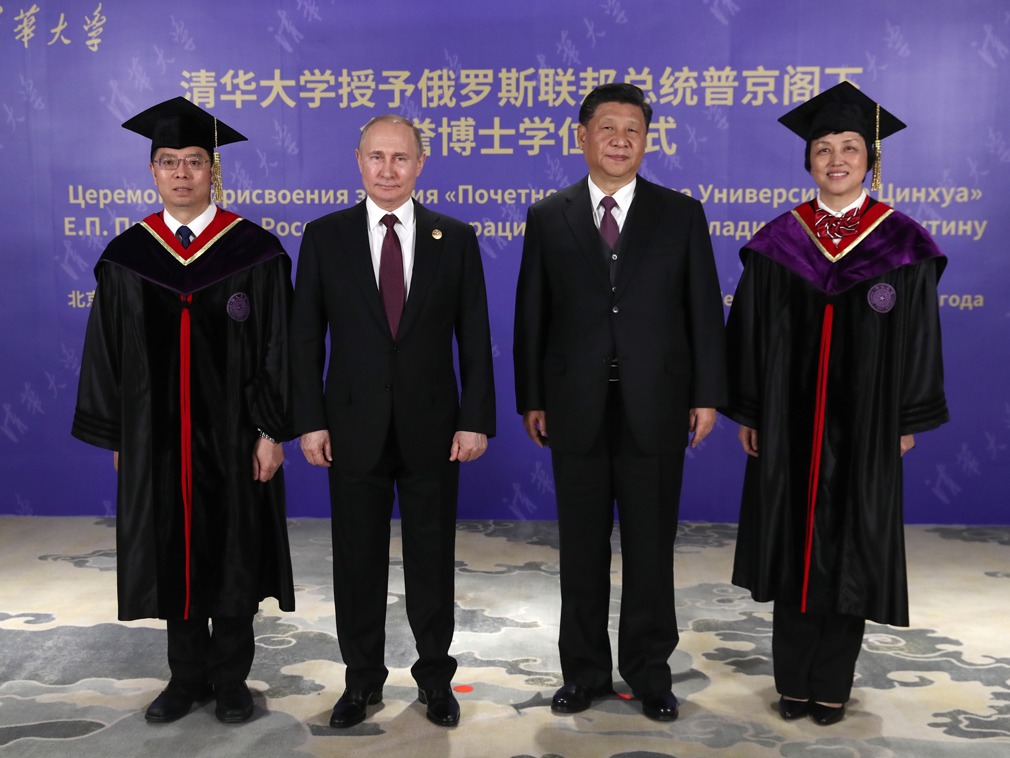Xu Zhangrun vs. Tsinghua University
Voices of Protest & Resistance (XV)
One of the themes of Tsinghua professor Xu Zhangrun’s essays on contemporary China is censorship, the multifaceted efforts of officialdom to silence any views that do not accord with the latest propaganda line. Xu describes the increased censorship of an already censorious government by using such hallowed, although still common, terms like ‘clamping mouths shut’ 鉗口, ‘stuffing mouths closed’ 杜口 and ’embargo and eliminate’ 封刪, short for 封殺刪除. Following the publication online of his famous July 2018 Jeremiad criticising Xi Jinping’s rule, Xu’s work was effectively purged from the Chinese Internet. He responded by publishing an essay addressing the censors titled ‘And Teachers, Then? They Just Do Their Thing!’. Zhang Weiying 張維迎, the Peking University economics professor who composed and sang a Shaanbei folk song in honour of the persecuted Xu, called it ‘There’s Just No Shutting You Up!’. (See The Xu Zhangrun Archive on this site.)

Xu Zhangrun has described the increasingly draconian rule of Xi Jinping as a modern-day reinvention of ‘Qin Rule’ 秦制, a term employed for over two millennia to sum up the tyrannical rule of the First Emperor of the Qin in the second century BCE. Put under formal investigation in late March 2019, he is also officially banned from expressing his views or publishing as a result of what is called ‘Speech Crime’ 因言獲罪. Xu has thus effectively been cast into what is historically known as a ‘Literary Prison’ 文字獄. He is by no means the only inmate in a jail that has both a boundless capacity as well as a voracious appetite.
For its part, in a validation of the criticisms of writers like Xu Zhangrun, the state media employs a term initially used to describe the despotic First Emperor of the Qin. Xi Jinping is extolled as China’s ‘Sole Source of Authority’ 定於一尊, or ‘Absolute Arbiter’. It also has declared that Chairman of Everything Xi has both the first as well as the final word regarding China’s present and its future, a concept summed up in the expression 一錘定音, literally, ‘[He who] sets the tone’.
***

***
‘Xu Zhangrun vs. Tsinghua University — Voices of Protest & Resistance’, the series published by China Heritage, allows readers to hear some of the voices of those who refuse to be intimidated, either by the persecution of Xu Zhangrun or as a result of the larger threat to China’s intellectual and cultural life. For the attack on Xu Zhangrun, and on dozens of other less well-known men and women, symbolises that something that is faced by independent-minded academics, teachers and researchers throughout the People’s Republic, as well as confronting the international academic world with a threat to publicly avowed values. While we celebrate the articulate daring of the writers we present in this series, we are also mindful of the silence that surrounds, and constantly threatens to engulf them. Although the silence is engineered by China’s party-state, countless individuals both in and outside of China choose to collaborate.
In ‘How Censorship Works’ the artist-provocateur Ai Weiwei contemplates China’s ‘Self-silent Majority’ and the devil’s compact that this Majority enjoys with the regnant party-state:
Whenever the state controls or blocks information, it not only reasserts its absolute power; it also elicits from the people whom it rules a voluntary submission to the system and an acknowledgment of its dominion. This, in turn, supports the axiom of the debased: Accept dependency in return for practical benefits.
The most elegant way to adjust to censorship is to engage in self-censorship. It is the perfect method for allying with power and setting the stage for the mutual exchange of benefit. The act of kowtowing to power in order to receive small pleasures may seem minor; but without it, the brutal assault of the censorship system would not be possible.
For people who accept this passive position toward authority, “getting by” becomes the supreme value. They smile, bow and nod their heads, and such behavior usually leads to lifestyles that are comfortable, trouble free and even cushy. This attitude is essentially defensive on their part. It is obvious that in any dispute, if one side is silenced, the words of the other side will go unquestioned.
That’s what we have here in China: The self-silenced majority, sycophants of a powerful regime, resentful of people like me who speak out, are doubly bitter because they know that their debasement comes by their own hand. Thus self-defense also becomes self-comfort.
— quoted in G.R. Barmé,
‘Memory Holes, old and new’
China Heritage, 29 May 2017
***

***
In early April 2019, shortly after Xu Zhangrun was put under investigation by Tsinghua University, a noted independent Nanjing-based singer by the name of Li Zhi (李志, 1978-) was also silenced (although there are also suggestions that his silence was due to ill-health). Some non-official media reports suggested that the already controversial performer was most recently condemned for ‘improper conduct’ 行為不端, presumably because of a performance of his song ‘The People Don’t Need Freedom’, which included the lines:
The People Don’t Need Freedom
These Years Are the Best of All
人民不需要自由
這是最好的年代
China Media Report offered the following account:
On April 3, Sichuan province’s Office of Culture and Tourism (文化和旅游厅) held a news briefing (新闻通气会). According to a report from Chengdu-based Red Star News (红星新闻), in February this year the Sichuan Department of Culture and Tourism (四川省文化市场执法监督局) directed culture offices at the provincial and city levels to “urgently cease plans by a certain well-known vocal performer showing improper conduct (某行为不端知名声乐演员) to give 23 personal performances in Sichuan” and to refund 18,000 tickets already purchased….
On April 4, other media confirmed that the “well-known vocal performer showing improper conduct” mentioned in the official release was indeed Li Zhi. In a subsequent interview with the Beijing Youth Daily, members of Li Zhi’s band claimed to be surprised by reports that Li Zhi was the “well-known vocal performer showing improper conduct” mentioned in the Sichuan release, and they said that the concert tour had indeed been cancelled at the time because Li was scheduled for minor surgery.
Later in the afternoon on April 4, the Sichuan Department of Culture and Tourism issued a statement saying that its actions in February were strictly in accordance with the Regulation on the Administration of Commercial Performances (营业性演出管理条例), and that no more should be read into the situation. But the case continued to raise speculation that Li Zhi has faced pressure for his outspoken political views. A number of Li Zhi’s songs, including “The Square” (广场), which deals with June 4, 1989, have tackled sensitive issues, and Li’s Weibo account has been suspended in the past.
Regardless of the reasons behind the singer’s silence, by 14 April his entire musical opus had been scrubbed from the Chinese Internet, and a WeiBo account with over one million followers deleted. It appeared that, overnight, Li had become a ‘Former Person’, to use an early Soviet-era expression. (Note: We have previously commented on the significance of the word 端 duān, as it appears in the classical Confucian text Mencius where it denotes innate moral virtues or positive human propensities. In keeping with a tradition that has tenaciously survived, and often flourished, in modern life, the moral, ethical and politically acceptable commingle; those in power reserve the right to determine when what may previously have been deemed ‘tolerable’ has become ‘[morally/ politically] unacceptable’ bù duān.)
***
After Li Zhi disappeared into the ever-expanding ‘memory hole’ of the Xi Era, a fan of the singer who called himself ‘Liu Jianshu’ 柳建樹 circulated a modern song-lyric, that is a poem that could also be sung to music. Liu’s work contains oblique references to Li Zhi’s songs, recent political events, Liu Xiaobo, the Fourth of June 1989 Beijing Massacre, the Umbrella Movement, the Mao-made Great Famine of the late 1950s and even the title of a well-known essay collection by Xu Zhangrun — 坐待天明, ‘Waiting for the Dawn’ (2013). For readers familiar with the Misty Poets 朦朧詩人 who emerged as a significant literary group after Mao’s death in 1976, Liu Jianshu’s song-lyric recalls what is arguably the most famous poem by the most famous poet of that era — ‘The Answer’ by Bei Dao. The original title of Liu’s own poem is itself ‘The Answer’ 回答, although it has circulated widely in China as ‘They’re Afraid’ 他們怕了, words which could also be rendered as ‘You Will Know Them by Their Fears’.
***
The Answer
Bei Dao (1976)

Baseness is the password of the base,
Honour is the epitaph of the honorable.
Look how the gilded sky is covered
With the drifting, crooked shadows of the dead.
The Ice Age is over now,
Why is there still ice everywhere?
The Cape of Good Hope has been discovered,
Why do a thousand sails contest the Dead Sea?
I come into this world
Bringing only paper, rope, a shadow,
To proclaim before the judgment
The voices of the judged:
Let me tell you, world,
I — do — not — believe!
If a thousand challengers lie beneath your feet,
Count me as number one thousand and one.
回答
北島
卑鄙是卑鄙者的通行證,
高尚是高尚者的墓誌銘。
看吧,在那鍍金的天空中,
飄滿了死者彎曲的倒影。
冰川紀過去了,
為什麼到處都是冰凌?
好望角發現了,
為什麼死海裡千帆相競?
我來到這個世界上,
只帶著紙、繩索和身影,
為了在審判之前,
宣讀那些被判決了的聲音:
告訴你吧,世界,
我——不——相——信!
縱使你腳下有一千名挑戰者,
那就把我算做第一千零一名。
— excerpt from Seeds of Fire (1986), p.236
***
The People Don’t Need Freedom
These Years Are the Best of All
人民不需要自由
作詞、作曲:李志
一個兄弟來看我,帶著銀子和故事,
他微笑著對我說,人民不需要自由
人民不需要自由,這是最好的年代,
人民不需要自由,這是最好的年代
有人沈默著觀望,有人懷疑著生活,
聽見他們在歌唱,人民不需要自由
兄弟喝多了在哭,愛人迷失了太久,
這時我總會想起,人民不需要自由
父親留下了一切,除了袋子和被子,
他一直想告訴我,人民不需要自由
— Geremie R. Barmé
Editor, China Heritage
26 April 2019
***
Related Material:
- An Overview of Li Zhi’s music (Chinese)
- An Introduction to Li Zhi and his Music, China Digital Times
- Li Zhi singing ‘The People Don’t Need Freedom’, YouTube
- Fan Shuhong, ‘Where is Li Zhi? Outspoken Folk Musician Seemingly Scrubbed from Internet’, RadiiChina, 14 April 2019
- Li Zhi’s music removed from the Chinese Internet, China Digital Times, 21 April 2019
- Anon., ‘Objecting 我反對’, China Heritage, 5 March 2018
- The Xu Zhangrun Archive, China Heritage, 1 August 2018-
Tsinghua University’s Confederacy of Dunces
When a true genius appears in the world, you may know him by this sign, that the dunces are all in confederacy against him.
— Jonathan Swift
***

By Way of Explanation
寫在前面
Ten days ago, a singer’s name was ‘disappeared’ from the Internet. In homage I wrote a poem that included some themes taken from his songs and recited it to the accompaniment of his music.
Within two hours of having posted my poem, the public Internet address that I’d been using for four years was permanently blocked. I had been ‘disappeared’ just like that singer. Here is my poem.
十天前,一位歌手的名字在網上消 失。 於是,我寫了一首詩,用了很多這 位歌手的意象。朗讀,配上了他的 音樂。向他致敬。
發出兩小時後,用了四年的公眾號 被永久屏蔽——就像這位歌手一樣。 詩如下。
***
They’re Afraid
他們怕了
Liu Jianshu
柳建樹
Translated by Geremie R. Barmé
Where have you gone, My Friend
My Singer, where are you now?
They say your guitar strings broke
The sandstorm scattered your songs
They say your concert has ended
The paper boat with your name
Swallowed now by dark waters
They say your tambourine was too loud
It stirred the stupefied from their dreams
Or was your beer just too cold
Too much for the heedless to cope with
Those with only stomachs for eating
They say that your questions were too foolish
Your answers did not measure up
And, so this spring
Again they are scared
The ones bearing flowers
What do they commemorate?
Those who are shedding tears
What is it that they mourn?
Those who were always lost
Now have Google Maps
When the beat starts up
They can’t help but dance
Once awake they sit waiting for the dawn
Those enjoying the spring warmth
Have limbs cold as ice
Those who hate so cleverly
And those who love with honour
Then those beauties make you
Make you feel like wetting yourself
And that’s why, this spring,
They are fearful again
Fearful of those who believe
For they believe in nothing themselves
Fearful too of those who don’t believe
For they dare to say: I DO NOT BELIEVE!
They fear the joyful
For in joy deals are forgotten
They fear the downcast
For in sorrow hate is forgotten
They fear those who regret, just as
They fear those who refuse regret
Fearful are they of enemies
Fearful more of those without enemies
They fear lawyers too devoted to the law
Fearful too of swordsmen cutting a swathe through laws
Fearful also are they of journalists, for they record the facts
Just as they are afraid of poets wielding metaphors
Turning everything topsy-turvy
They fear those who refuse red-braised pork
Just as they fear pigs that won’t eat feed
Those who dream of whales
And wake, yearning to go to the sea
There’s those who, at night in April,
Fill pots to preserve vegetables
Those who break fingers for pens
And thereby derive a general theorem
Those who cut open their stomachs
And planting a giant’s tooth
Those who put themselves in the earth
Becoming like a key
In hopes the ground will blossom
And so, this spring, they too are fearful
Scared of the old, for the old understand
Fearful of the young, for they don’t care
They are afraid of the poor
For they have nothing left
The rich, too, they fear
For rich are they in patience
They fear those who go out for a stroll
And learn to love the ground they walk on
They fear those with umbrellas
For they disclose a downpour is on the way
They are afraid cities will be built in the heavens
And worry that the builders are doing it
To design wings for themselves
Fearful are they that children learn to dance
Afraid that we will meet
On a sunlit afternoon
They fear people with cats, and cats
That stare at them with a fixed gaze
They are afraid of games
and they are fearful of holidays
Fearful too that they might appear
In unapproved of dreams
They fear karma
As well as logic
Fearful too of any hypothesis
That’s based on a new premise
Fearful if an apple tastes sweet again
Or when a piece in the jigsaw falls into place
Even willows extend their tendrils silently
Whenever they are not watching
They take fright at the tongues of fire
from the Heavens to the Great Floods
Suddenly pulverising those sculptures
The ashes of the dead still warm
They are fearful that the auditors will
Tally silhouettes of 30 million souls
Scared too if archaeologists dig up
The forgotten burdens of a century
Scared also of challengers on their doorstep
One more, now a total of one thousand and two
They worry about their tanks being immobilised
Because just one screw has gone awry
They pressgang us to slave on their grand towers
Raised over the bloodstained earth
They promise to pay for the suffering
But increase wages by a mere pittance
But, please, don’t sign your name
Because, just today, we lost your file
Tomorrow someone will sit in judgment
For the image lost today
Tomorrow someone will observe
The singing and dancing today
For tomorrow the dead will be mourned
See, he who wields the knife up there
Up there, too, he will be cleaved in half
How can we be children of this Earth
For Earth permits this thorny prison
Don’t the clocks in our hearts
Vibrate now ever more strongly
Foretelling that the hour is nigh?
Time now for you to release your eagle
To invite down the lightning
Time too for you to cast out one last hope
For that last straw will crush them
Time now to sing the dirge long rehearsed
For that is their ‘Songs of Chu’
They are fearful
They are afraid
They are scared
They fear youthful strength
People with fresh arms
Those with strong thighs
Foreskins that are too long
The garbage pickers
Those who look with knowing smiles
People who readily know shame
Those who sing out of tune
The dismembered
Those once loved
Those hoping to be buried in their old homes
Those who died only three days ago
And those who died thirty years past
Those who died two millennia ago
Those stark white skeletons
Those supple long backbones
Mouths with fresh tongues
Those whose noses aren’t blocked
Those who give blood to the red roses
Who slake their thirst with tears
People who can’t find excuses
Those not desperate for a fuck
Who retain their semen [courage]
Those who bend the sunlight
People who run up with the news
Who plough the land with their teeth
Whose skins are the canvas for paintings
Those who bathe in the burning fires
They are fearful
They are afraid
They are scared
你去哪裡了,我的朋友
你去哪裡了,我的歌手
聽說你的琴弦斷了
風沙吹跑了你的歌
聽說你的聚會散了
寫著你名字的紙船
被幽暗的河吞沒
聽說你的手鼓太響
震動了酣眠者的夢鄉
聽說你的啤酒太涼
攪亂了沒心沒肺的人
僅有的大腸和小腸
聽說你的問題太傻
而你的回答
不符合標準答案
於是這個春天
他們又怕了
有人捧著鮮花
不知要紀念什麼
有人留下眼淚
不知在哀慟什麼
有人總是迷路
學會了用谷歌地圖
有人聽到音樂
就無法停止舞步
有人從夢里驚醒坐待天明
有人沐浴春光卻手腳冰涼
有人恨得聰明
有人愛得榮耀
有人美得讓人
直想撒尿
於是這個春天 他們又怕了
他們怕相信的人
因為他們已經不信
他們怕不信的人
不信的人說:我不相信!
他們怕歡樂的人
歡樂得忘記交易
他們怕憂傷的人
憂傷得忘記憎恨
他們怕懺悔的人
也怕拒絕懺悔的人
他們怕敵人
更怕沒有敵人的人
他們怕律師太過忠誠法律
怕刀客把法律刺穿
他們怕記者記錄現實
怕詩人只用一句比喻
就把現實顛覆
他們怕不吃紅燒肉的人
如同怕不吃飼料的豬
有人夢見鯨魚
醒來就去看海
有人在四月的夜晚
醃下一壇酸菜
有人折斷手指做筆
推導一則公式
有人剖開肚皮
種一顆巨人的牙齒
有人把自己插進土里
像一把鑰匙
要試試解開上鎖的大地
於是這個春天 他們又怕了
他們怕老人 老人已經懂了
他們怕青年 青年還不在乎
他們怕窮人
窮人已經窮於應付
他們怕富人
富人將會富有耐心
他們怕散步的人
愛上腳下的土地
他們怕打傘的人
洩漏大雨將至的秘密
他們怕有人把城市建在天上
他們怕這些人又擅自為自己
畫出翅膀
他們怕孩子們學會跳舞
怕我們相遇在一個
陽光充足的下午
他們怕有貓的人
以及貓凝視他們的眼睛
他們怕遊戲
他們怕節日
他們怕自己出現在
未經審批的夢里
他們怕因果
他們怕邏輯
他們怕有人開始假設
一個新的前提
他們怕蘋果找回甜味
拼圖找對位置
柳樹趁他們背過臉去
默默伸長了枝
他們怕舌頭分叉的火焰
從天而至的大水
突然摔碎的雕像
余溫尚存的骨灰
他們怕審計員算出
三千萬靈魂的形狀
他們怕考古師挖到
一百年遺忘的重量
他們怕門口的挑戰者
增加到一千零二名
他們怕坦克的癱瘓
只是因為一顆發芽的螺釘
他們要我們建築高塔
蓋住地上的血跡
他們承諾報銷苦難
並且漲一級工資
但請不要簽下你的名字
因為今天丟失的案卷
明天就會有人審判
今天丟失的畫面
明天就會有人觀看
今天歌舞的會堂
明天就將變成靈堂
那站在高台動刀的
將被高台的刀斬斷
我們豈非大地的孩子
大地豈會聽任我們被荊棘囚禁
我們胸膛的鐘
豈不是已經
震顫著
預告時辰的臨近
是時候放出你的鷹
去接引閃電
是時候投擲出你的救命稻草
那將是壓倒他們的最後稻草
是時候放聲唱出默誦已久的輓歌
那將是他們的四面楚歌
他們害怕
他們害怕
他們怕了
他們害怕脖子年輕的人
手腕芬芳的人
大腿結實的人
包皮過長的人
拾起垃圾的人
相視而笑的人
容易臉紅的人
唱歌走調的人
支離破碎的人
曾被愛過的人
想埋在家鄉的人
三天前死去的人
三十年前死去的人
兩千年前死去的人
頭骨潔白的人
脊髓綿長的人
舌頭新鮮的人
沒得鼻炎的人
為玫瑰輸血的人
喝眼淚止渴的人
找不到藉口的人
不急著性交的人
保存種子的人
折射陽光的人
跑著來報訊的人
用牙齒犁地的人
用皮膚作畫的人
用火焰洗澡的人
他們怕了
他們怕了
他們怕了

